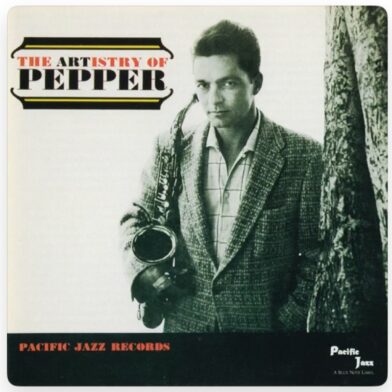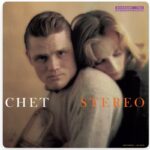
Music has never before been so effective in defining character as it does in the long-running TV series Bosch.
“Do you ever listen to anything from this century?” ~ Bosch’s partner J. Edgar
“I’m still getting caught up with the last one…” ~ Harry Bosch
The TV series Bosch features actor Titus Welliver playing San Francisco detective Harry Bosch, who is is one tough customer, a veteran of Afghanistan tours who can take on the roughest of criminals in physical confrontation. He also deals forthrightly with the incompetence of some bad actors within his own organization. He has another side and it’s shown through his love of music, specifically classic jazz.
The long-running streaming series has been consistent from the beginning with its use of music, but with Bosch it’s more than background – it’s a key element in understanding the character. This is not the first TV series or film to employ music in setting a scene or a mood. As Daniel Levitin explains in his book “This Is Your Brain on Music”, “film directors use music to tell us how to feel about scenes that otherwise might be ambiguous, or to augment our feelings at particularly dramatic moments.”
In recent television, music was used powerfully, if sparingly, in the crime series The Wire, serving to characterize the city of Baltimore: rough-sounding hip-hop, Greek folk singing, club music, and at least four variations of the theme made the series memorable for its sonic textures. It’s a worthy precedent.
The Bosch series aims for something different, even unique, with a faithful and detailed depiction of the main character’s duality. An abused orphan who grew up in institutions and foster homes after his mother was murdered, Harry Bosch becomes a police detective following his military service. He is a taciturn but clever survivor who is skilled at solving serious crimes, living on the edge in more ways than one.
His home is perched high on a San Francisco hilltop, with floor to ceiling windows offering splendid views of the city. HIs living room contains a fine audio system geared to jazz or classical listening: floor-standing Ohm Walsh speakers, a Marantz manual turnable and McIntosh tube electronics atop a record cabinet filled with vinyl records. Harry bought the home with royalties from a movie – one featuring a crime he had solved.
A frequent scene in the series is the sight of Bosch alone at home in evening, a Scotch in one hand, a cigarette in the other. In the background a record is playing – always a classic album, perhaps something by Chet Baker, Cannonball Adderley, or Bill Evans – famed jazz artists of the mid 1950s. It’s sophisticated, thoughtful and penetrating music, perfect for late-night listening.
His audio system is expensive and well-maintained, as well as being the only such system ever featured in a film or TV series. We see Harry carefully handling an album cover, placing the record on the turntable, lowering the needle onto the platter. We often hear the quiet thrum of the needle after the side has finished playing, and observe Harry rising to change the record or turn off the system for the night. He is a true audiophile, though not pretentious about it.
His car radio is tuned to the jazz station and when a meaningful track comes on, he’ll offer comments on the piece or the performer to his partner J. Edgar, who is somewhat bemused by Bosch’s fascination with this music.
Season 5 sees Bosch enter the police Evidence department, where the attending officer is listening to jazz on a tiny radio. “Keep swinging” he comments. The same season sees a young female detective who wants to make a trip to Bakersfield to work on a case, hoping to experience the wellspring of her preferred music: Merle Haggard, Buck Owens, and the Bakersfield sound – another example of music defining character in the series.
We also see Bosch in record stores, shopping for vinyl records. He recommends to his daughter Maddie that she get a turntable, saying “it’s the only way to listen to music”.
Music defines who Bosch is after-hours. It is the single most important element in understanding the duality of his nature: he is the toughest of the tough cops, and the most sensitive of men, driven to resolve the tragedy of his early life.
The creator of Bosch, Michael Connelly, had this to say about his loner detective: “I wanted him to be an insider, but I wanted him to feel like an outsider. And so I took careful attention to things that I thought would make him feel like an outsider. And one of them was his music….Harry Bosch didn’t know who his father was, and so as a little kid he built up this fantasy. His mother liked jazz and his joy from jazz is inherited from his mother, who also had a struggle in life.”
Harry Bosch evinces a particular love for the music of Art Pepper, an incredibly talented alto saxophone player who spent several stints in jail for drug addiction, and succumbed to a stroke at age 56. Several excerpts from Pepper’s music are featured in multiple episodes of the Bosch series.
Pepper met fellow musician Frank Morgan in San Quentin prison, and performed with him. Bosch, perhaps in sympathy with characters who had endured life’s struggles, also sought out the music of Frank Morgan, who kicked heroin eventually. Morgan worked closely with author Michael Connelly on the Bosch book The Overlook, published in 2007, by creating music to accompany the audio book. This is a great case of art intersecting with life.
Bosch and late-night jazz are inseparable; one conjures up the other as in no other film creation.



